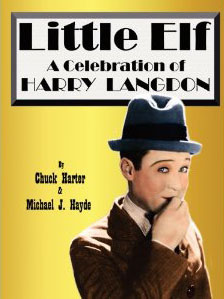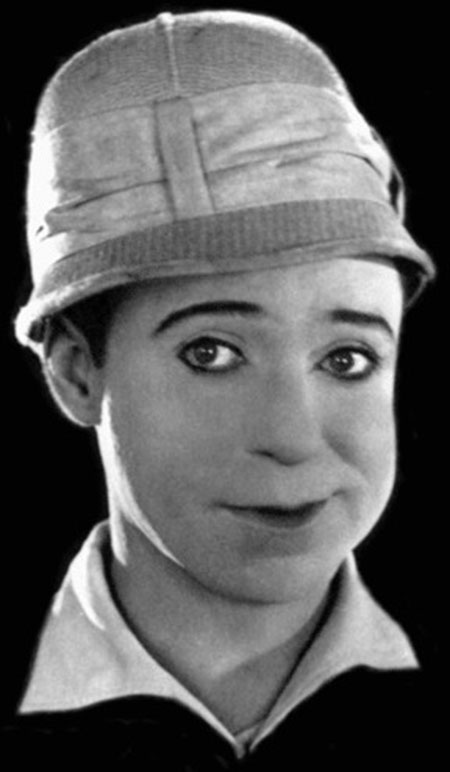|
|||||||||||||||||
November 2009 Web Edition Issue #3 |
|||||||||||||||||
|
Mondo Cult
Forum
Blog
News
Mondo Girl
Letters
Photo Galleries
Archives
Back Issues
Books
Contact Us
Features
Film
Index
Interviews
Legal
Links
Music
Staff
|

Little ElfA Celebration of Harry Langdonby Chuck Harter and Michael J. HaydeBear Manor Media 2012, $49.95You may think the new Telephone Directory somehow wound up in your mail when you open a package containing this astonishing achievement from Bear Manor Media. It stops short of 700 pages, but not by much. It is a big book. Older fans who might be suffering from deteriorating vision will have no trouble perusing the exhaustively informative text, or pouring over the 500 pictures. "But who is Harry Langdon?" a novice cineaste might be imprudent enough to ask in a careless moment. This book alone is sufficient to crush such a helpless innocent awash in ignorance. That is unless such an innocent, with careful choreography and a little help from the Almighty, gracefully dodges the blow the way Harry Langdon would in a classic two-reeler! Think how much mayhem can be avoided with just the right amount of vaudeville. Harter and Hayde (who sound like a comedy team for Mack Sennett) provide a book that is biography, filmography, and even a spirited defense of their subject. Langdon benefits from the defense because he suffered years of abuse from no less than Frank Capra. The one and a half screen legends (guess which is which) worked together on comedies in the 1920s. That was before Capra went on to more fanciful and maudlin melodramas that the American people confused with reality. During the endless years of his later fame, Frank Capra rarely passed up the opportunity to denigrate his earlier collaborator. But the story doesn't end there. It's a bit like a movie scenario, actually. Capra never denied the comedy genius of Harry Langdon -- a genius this book proves and celebrates. That objectivity makes the narrative more interesting than a typical Hollywood feud. (Despite his long standing grudge that began when Langdon fired Capra, the great director could still be objective about the actor's work on screen. Contrast that with Curt Siodmak's mean-spirited attacks on Bela Lugosi's talent as well as the man, personally.) 
Of all the fascinating material in the book, the grudge casts a shadow, leading to this big kick: Frank Capra wanted to take credit for understanding and guiding Langdon's art better than the Little Elf ever did himself. What makes it perfect is that Capra came up with the moniker of "Little Elf" himself, encapsulating the child-like magic Langdon could bring to adults who watched his films. What makes it imperfect for Capra is that despite his remarkable career, he could never get over his obsession with being slighted by Langdon. And then there is the added irony that Chuck Harter and Michael J. Hayde understand Langdon better than Capra, without in any way diminishing the contribution the director made to a talent that he nourished, but could not dominate. Could Langdon have been as great as Chaplin or Keaton? The important thing is that he is remembered. Enough of the silent star's work survives, right into the Talkies (he died in 1944) for future reappraisals. Fashions change. Taste is fickle. The battle is to be remembered at all. He worked with everyone from Oliver Hardy to Al Jolson to Joan Crawford. He was funny with Billy Gilbert. He looked perfectly content with gorgeous Nell O'Day. He did a lot of pictures. Harter and Hayde have made their contribution to memory. They analyze and cherish and consider. You can hear the laughter flowing through the book. Langdon's comic timing was about taking enough time to figure out a situation. The reader should do the same, and not rush through these wonderful pages. — Brad Linaweaver
(Brad Linaweaver is an award winning writer and the publisher of Mondo Cult.)
| ||||||||||||||||



